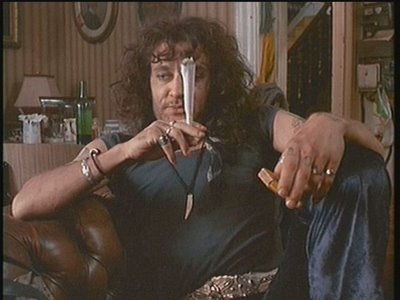Reefer sanity.

The unpublished results of authoritative research into cannabis confirm the "skunk" now on sale in England is stronger than it was a decade ago, but demolish claims that a new "super-strength skunk" - which is 20 times more powerful - is dominating the market.
Usually moral panics are started by the tabloids and then enter the public consciousness, forcing the other media to cover them. While the Daily Mail has had a significant role in the recent resurgence in nonsense being written about cannabis or "skunk", it was given additional credibility by the Independent on Sunday, which reversed its campaign for cannabis to legalised, with the former editor Rosie Boycott informing us that skunk is "30 times stronger", although she does still believe all drugs should be legalised. The main article, as Transform wrote, was all over the place with its facts, or rather lack thereof.
It's hardly likely though that the Grauniad article is going to change minds that have already been made up with all the fearmongering. Today this article was in the Mirror:
Cannabis is fuelling a youth crime wave - with 90 per cent of teen offenders using it.
Yes, because cannabis is almost certainly the cause and not coincidental.
A survey of England's Youth Offending Teams, which deal with lawless teenagers, adds that cannabis use had gone up by 75 per cent since it was downgraded to class C in 2004.
Possibly, although the other figures suggest that use of cannabis among the general populace has actually fell since 2004.
And a separate study by King's College, London, reveals 25 per cent of users have turned to crime to fund their habit.
Sounds laughable, considering how cheap cannabis is. Strange also that the Grauniad didn't mention that figure.
Having said that, cannabis is not harmless, and pretending that it isn't only damages the case of those who would like to see it go further towards the legalisation route. Those under 18 shouldn't be using it because of the increased potential damage to both their mental and physical health, as with numerous other drugs. The evidence simply isn't there however for the drug to even be considered for reclassification at Class B: do the Youth Offending Teams want the children they're dealing with to have further convictions for possession of drugs, increasing further the potential strain on the system? There's enough complaints from the police already about their time being wasted with excess bureaucracy and paperwork; do they want to be back with having to bring to book every person they stop who happens to be carrying a tiny amount of cannabis for personal use? The recent Lancet study which attempted to develop a rational scale to assess the harm of drugs placed cannabis as the 11th most dangerous drug out of the 20 they examined, with alcohol fifth and tobacco ninth.
Is it really so much to ask for a coherent, evidence-based policy? Oh, yeah, this is Britain.
P.S.
Stumbling and Mumbling sums up the ideology of panic over Northern Rock, while the Times reports on another interpreter murdered in Basra. The we can't turn them away campaign gets ever more vital.
Labels: cannabis, cannabis potency, drugs, moral panics, skunk

